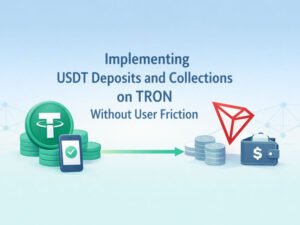In construction, strong client relationships are vital for standing out in a competitive industry. Going beyond expectations through open communication, consistent quality, and responsiveness builds trust and retention. By understanding client needs, valuing feedback, and demonstrating continuous improvement, companies build reliability and trust, turning one-time clients into long-term partners.
Building Trust With Clients
To strengthen client relationships, focus on clear communication, transparency, and realistic expectations. These elements foster trust and encourage long-term partnerships.
Effective Communication Strategies
Communication is at the heart of trust-building. Use open channels to ensure clients feel heard and informed. Regular updates about project progress make a big difference. Use a combination of emails, phone calls, and in-person meetings to keep communication clear and consistent.
Consider a communication plan with set check-ins. This approach helps in addressing concerns swiftly and maintaining client engagement. Active listening is crucial. When clients speak, acknowledge their feedback and act on it. Show appreciation for their input, making them feel valued.
Transparency Throughout the Project Lifecycle
Being transparent means sharing the good and the bad. Clients appreciate honesty, even when things don’t go as planned. Use detailed reports to present project status. As a business-to-business PR agency might advise, clearly communicating both challenges and solutions helps clients see that you’re proactive and transparent.
Share costs and timelines openly. If changes occur, inform clients immediately. This openness prevents surprises and fosters trust. Use tools like software platforms to offer real-time updates. Access to current information reassures clients of your commitment and professionalism.
Setting Realistic Expectations
Manage expectations from the start. Outline clearly what your team can deliver. Use initial meetings to set achievable goals and discuss potential challenges. When setting timelines and budgets, consider possible delays or cost variations.
Set a realistic picture of what’s achievable. Avoid overpromising to win a contract. Be upfront about potential issues. If unforeseen circumstances arise, explain the situation honestly. Clients value a straightforward approach. This way, they are prepared for any situation, strengthening their confidence in your capabilities.
Delivering Exceptional Customer Service
In the construction industry, building strong relationships with clients is critical. Focusing on personalization, responsiveness, and proactive issue resolution enhances service quality and fosters loyalty.
Personalizing the Client Experience
Personalizing the client experience begins with actively listening to your clients. Understanding their unique needs and preferences helps you deliver tailored solutions. Just as skilled machinists use manual lathes to craft precise results, your team should focus on detail and customization in every interaction. Use CRM tools to track client data and preferences, ensuring every interaction feels personal and informed.
Maintaining open communication channels is essential. Share updates regularly on the project’s progress. Emphasize transparency and invite feedback, making clients feel valued and involved. Personal touches, such as sending a thank-you note after meetings or celebrating project milestones, can leave a lasting positive impression.
Responsiveness to Client Needs
Being responsive shows clients you value their time and priorities. Reply to emails, calls, or messages promptly. A quick response can make a significant difference in client satisfaction, demonstrating that their concerns are important to you.
To achieve this level of responsiveness, it’s crucial to maintain adequate staffing. Use automated systems for instant acknowledgments, ensuring that clients know their inquiries are being addressed. Effective team coordination ensures that client needs are met without delay, contributing to positive experiences and trust.
Resolving Issues Proactively
Anticipate potential problems and address them early to prevent escalation. Proactive communication is key. Regularly update clients on potential risks or changes in project scope. This openness can prevent misunderstandings and build trust.
Implementing a structured problem-solving approach within your team helps identify and resolve issues efficiently. Encourage a culture of accountability and quick intervention, empowering team members to act decisively. By addressing issues before they become significant problems, you demonstrate commitment to your clients’ success and enhance overall satisfaction.
Fostering Long-Term Relationships
Building lasting connections with clients requires ongoing effort and commitment. Focus on supporting clients after projects, actively seeking their feedback, and recognizing significant achievements.
Post-Project Support and Follow-Up
Your relationship with clients shouldn’t end once the project is completed. Offer post-project support to ensure they are satisfied with the results and offer solutions to any issues. This demonstrates commitment beyond project delivery.
Proactively schedule follow-up meetings to discuss project outcomes and address any client concerns. Make sure to communicate clearly, emphasizing transparency and availability to strengthen the relationship. These steps can increase trust and lead to future collaboration opportunities.
Encouraging Feedback and Continuous Improvement
Actively seek feedback from clients to understand their experiences and expectations. Use surveys, interviews, or informal conversations to gather insight. This feedback is invaluable for making improvements and aligning more closely with client needs.
Show that you value their input by implementing changes based on their feedback. This open communication loop not only enhances service quality but also demonstrates respect for client opinions. Clients are more likely to return when they feel heard and valued.
Celebrating Client Milestones
Recognize and celebrate important milestones with your clients. Whether it’s the successful completion of a project or the anniversary of a partnership, these moments are opportunities to strengthen your connection.
A simple gesture like sending a congratulatory note or hosting a small event can go a long way. These gestures highlight your appreciation for the client’s business and strengthen goodwill. Celebrating together creates a sense of partnership and shared success, making clients feel appreciated and eager to continue the relationship.
Leveraging Technology for Better Engagement
In the modern construction industry, technology paves the way for enhanced client engagement and satisfaction. By embracing digital tools, construction companies can offer clients real-time interactions, transparent updates, and streamlined project management.
Utilizing Client Portals for Updates
Client portals act as a centralized hub for sharing project updates and documents. By using these platforms, your clients can access project timelines, view progress photos, and download reports at their convenience. This direct line to project data not only keeps clients informed but also builds trust and transparency.
Moreover, the ability for clients to leave feedback or ask questions within the portal streamlines the communication process. This proactive approach reduces the chances of misunderstandings and enhances client satisfaction. It gives them a sense of involvement and control over their projects.
Streamlining Communication with Digital Tools
Digital tools like instant messaging apps and video conferencing platforms facilitate quick and efficient communication. They help you maintain real-time conversations, share updates, and even hold virtual meetings if necessary. This immediacy ensures clients feel connected, even from afar.
Such tools can be customized to fit specific project needs, ensuring that all relevant team members and stakeholders are included. This communication approach makes it easy to address concerns promptly and maintain a steady flow of information. It helps develop a close, responsive relationship with your clients.
Implementing Project Management Software
Project management software simplifies the complex logistics of construction projects. By implementing these solutions, you can schedule tasks, allocate resources, and monitor progress with ease. They offer a comprehensive overview of the project’s status, which can be shared with clients to keep them updated.
These programs often include features for risk assessment, budgeting, and deadline management. The clarity and organization they bring help you anticipate challenges and adjust plans accordingly. This methodical approach reassures clients and demonstrates professionalism and commitment to project delivery.
Conclusion
Strong client relationships are the foundation of long-term success in the construction industry. By prioritizing clear communication, transparency, and responsiveness, companies can build trust that lasts beyond individual projects. Consistently seeking feedback, offering post-project support, and recognizing client milestones show a genuine commitment to partnership rather than transaction. Leveraging modern technology for real-time updates and collaboration further enhances this trust, helping clients feel informed and valued at every stage. When construction companies combine proactive communication with personalized service and accountability, they turn satisfied clients into loyal advocates who drive repeat business and sustainable growth.










